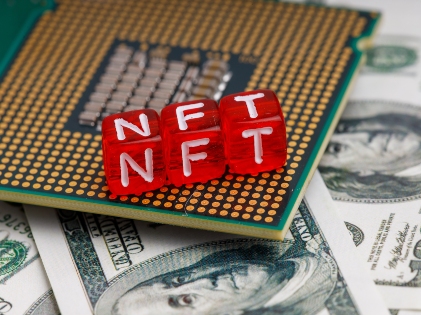Julia Lew, in 2005, expressed his fantasy of autonomous arbitration, that was, arbitration without any government involvement. The ideology of sovereign arbitration is still a much-disputed subject, with the current observation by Ralf Michaels being that independent arbitration is not today exists and possibly could never happen. However, according to the author’s point of view, continuous radical technological developments such as blockchain technological developments and the Metaverse.
These technologies and now have started to penetrate deeply into the lives of the masses hence it can be assumed that Julia Lew’s dream of free arbitration from any state interference will come true.
Theory of Autonomous Arbitration
The theory of autonomous arbitration, says, arbitrations must remain independent and away from state involvement. Therefore, international arbitrations should be ruled by international regulations and operations, and not national laws. The supporters of the theory have accepted that parties should depend on courts for the implementation of arbitral benefits.
 If voluntarily, the parties refuse to follow the rules in regards to the tribunal’s award during arbitration, the other party can go to national courts. Mostly, in courts with authority over the tribunal’s jurisdiction. However, commonly national courts follow national law in operating their jurisdiction, follow national law.
If voluntarily, the parties refuse to follow the rules in regards to the tribunal’s award during arbitration, the other party can go to national courts. Mostly, in courts with authority over the tribunal’s jurisdiction. However, commonly national courts follow national law in operating their jurisdiction, follow national law.
Michaels proclaims that arbitration should not be dependent on states to ensure it is completely free. Instead, it should have its own implementation mechanism. While many factors hinder complete independent arbitration, developments like distributed ledger technology have helped in the process. However, it is important to understand the need for arbitration before talking about its freedom.
The effect of free autonomy on encouraging trading through whole party freedom and procedural elasticity has been extensively debated. Recently, international arbitration enforced a complete understanding of both national laws and state operations as it is still affected by states. Therefore, the parties are bound to deal with the expenses of intervention, Hence parties with a lack of resources need to have an affordable mechanism to survive. To deal with this, the fundamentals of state mediation need to be separated and independent operation functions should be formed so that parties can resolve disputes directly without significant interventions. To facilitate full arbitrage independence, and enjoy justice, is recently developed blockchain technology.
Application of Automation through Blockchain Arbitration to properly Reinforce the Concept
A vibrant development that has facilitated arbitration of autonomy is blockchain platforms, it is built according to the goal of decentralization and offering cheap and effective dispute resolution facilities to the world. Many platforms have acknowledged the prospect of blockchain and began offering services of arbitration using this technology. These platforms enable the automatic application of arbitration by composing awards as digital contracts on the platform. Because automation through smart contracts is fully digital, the solution specified in the award must also be accomplished digitally.
 In many scenarios, the digital contract is associated with an escrow account in which the involved parties would pay a pre-decided amount. Accordingly, if there is a need for additional payment than the available amount in the linked or escrow accounts, they may ask for court mediation. However, this can be avoided by digitally representing assets that can then be connected to smart contracts. For example, NFT is a collection of digital assets. They are smart tokens saved in the blockchain, portraying ownership of different items.
In many scenarios, the digital contract is associated with an escrow account in which the involved parties would pay a pre-decided amount. Accordingly, if there is a need for additional payment than the available amount in the linked or escrow accounts, they may ask for court mediation. However, this can be avoided by digitally representing assets that can then be connected to smart contracts. For example, NFT is a collection of digital assets. They are smart tokens saved in the blockchain, portraying ownership of different items.
In 2021, the popularity of the NFT predicts a future where the acquisition of digital assets will be common. Therefore, using virtual assets and ownership of currency to execute digital contract awards, cheap blockchain arbitration functions could be mapped out to act as a possible solution for the world.
Metaverse and Autonomous Arbitration
 The metaverse is a virtual universe, in which users own their respective digital avatars and can communicate with other objects. Besides, the gaming Metaverse has advanced recently to offer a virtual substitute to humans, for example, to organize weddings, host concerts, or own digital pets.
The metaverse is a virtual universe, in which users own their respective digital avatars and can communicate with other objects. Besides, the gaming Metaverse has advanced recently to offer a virtual substitute to humans, for example, to organize weddings, host concerts, or own digital pets.
Metaverse allows ownership of multiple assets from clothing/accessories to virtual land. As people are adopting this new digitalized world aggressively, the web 2.0 system will soon be replaced web 3.0 system which will allow people to own different commodities and represent themselves virtually.
However, there will be some other, currently unknown, commercial disputes in the new world.
Conclusion
It is predicted that by 2030 everyone will be a part of the Metaverse in one way or another. The growth of blockchain platforms and Metaverse demonstrate that the masses are accepting digital assets and currencies; hence they will have an opportunity to enjoy the freedom of arbitration from government interferences; Therefore it can be anticipated that independent arbitral functions is inevitable.




